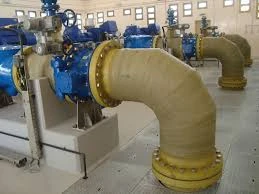
-
 Afrikaans
Afrikaans -
 Albanian
Albanian -
 Amharic
Amharic -
 Arabic
Arabic -
 Armenian
Armenian -
 Azerbaijani
Azerbaijani -
 Basque
Basque -
 Belarusian
Belarusian -
 Bengali
Bengali -
 Bosnian
Bosnian -
 Bulgarian
Bulgarian -
 Catalan
Catalan -
 Cebuano
Cebuano -
 China
China -
 China (Taiwan)
China (Taiwan) -
 Corsican
Corsican -
 Croatian
Croatian -
 Czech
Czech -
 Danish
Danish -
 Dutch
Dutch -
 English
English -
 Esperanto
Esperanto -
 Estonian
Estonian -
 Finnish
Finnish -
 French
French -
 Frisian
Frisian -
 Galician
Galician -
 Georgian
Georgian -
 German
German -
 Greek
Greek -
 Gujarati
Gujarati -
 Haitian Creole
Haitian Creole -
 hausa
hausa -
 hawaiian
hawaiian -
 Hebrew
Hebrew -
 Hindi
Hindi -
 Miao
Miao -
 Hungarian
Hungarian -
 Icelandic
Icelandic -
 igbo
igbo -
 Indonesian
Indonesian -
 irish
irish -
 Italian
Italian -
 Japanese
Japanese -
 Javanese
Javanese -
 Kannada
Kannada -
 kazakh
kazakh -
 Khmer
Khmer -
 Rwandese
Rwandese -
 Korean
Korean -
 Kurdish
Kurdish -
 Kyrgyz
Kyrgyz -
 Lao
Lao -
 Latin
Latin -
 Latvian
Latvian -
 Lithuanian
Lithuanian -
 Luxembourgish
Luxembourgish -
 Macedonian
Macedonian -
 Malgashi
Malgashi -
 Malay
Malay -
 Malayalam
Malayalam -
 Maltese
Maltese -
 Maori
Maori -
 Marathi
Marathi -
 Mongolian
Mongolian -
 Myanmar
Myanmar -
 Nepali
Nepali -
 Norwegian
Norwegian -
 Norwegian
Norwegian -
 Occitan
Occitan -
 Pashto
Pashto -
 Persian
Persian -
 Polish
Polish -
 Portuguese
Portuguese -
 Punjabi
Punjabi -
 Romanian
Romanian -
 Russian
Russian -
 Samoan
Samoan -
 Scottish Gaelic
Scottish Gaelic -
 Serbian
Serbian -
 Sesotho
Sesotho -
 Shona
Shona -
 Sindhi
Sindhi -
 Sinhala
Sinhala -
 Slovak
Slovak -
 Slovenian
Slovenian -
 Somali
Somali -
 Spanish
Spanish -
 Sundanese
Sundanese -
 Swahili
Swahili -
 Swedish
Swedish -
 Tagalog
Tagalog -
 Tajik
Tajik -
 Tamil
Tamil -
 Tatar
Tatar -
 Telugu
Telugu -
 Thai
Thai -
 Turkish
Turkish -
 Turkmen
Turkmen -
 Ukrainian
Ukrainian -
 Urdu
Urdu -
 Uighur
Uighur -
 Uzbek
Uzbek -
 Vietnamese
Vietnamese -
 Welsh
Welsh -
 Bantu
Bantu -
 Yiddish
Yiddish -
 Yoruba
Yoruba -
 Zulu
Zulu
Innovative Fiberglass Stack Liners for Enhanced Durability and Performance in Industrial Applications
Understanding Fiberglass Stack Liners Benefits and Applications
Fiberglass stack liners are an innovative solution in the field of industrial emissions management. Designed to enhance the performance and longevity of exhaust stacks in various industrial applications, these liners provide both corrosion resistance and structural integrity. With the increasing emphasis on environmental protection and regulatory compliance, fiberglass stack liners have become an essential component in many industries, including power generation, chemical processing, and manufacturing.
What are Fiberglass Stack Liners?
Fiberglass stack liners are composite materials fabricated from glass fibers and resin, which create a lightweight yet durable product. When used in stack applications, they offer a protective layer that resists the harsh conditions typical of exhaust systems, such as high temperatures, corrosive gases, and particulate matter. The unique properties of fiberglass, including its resistance to chemical corrosion and high tensile strength, make it an ideal choice for both new installations and retrofitting existing stacks.
Benefits of Fiberglass Stack Liners
1. Corrosion Resistance One of the most significant advantages of fiberglass stack liners is their exceptional resistance to corrosion. In industries where sulfuric acid, hydrochloric acid, and other corrosive substances are present, traditional materials like metal can degrade quickly. Fiberglass liners, however, remain intact and functional, protecting the structural integrity of the stack.
2. Temperature Tolerance These liners can withstand extreme temperatures, making them suitable for various applications, including high-temperature flue gas emissions. Withstanding temperatures up to 400°F (204°C) or more, fiberglass stack liners maintain their strength and flexibility even under challenging conditions.
3. Weight Savings Compared to traditional materials like steel or concrete, fiberglass is significantly lighter. This weight reduction can lead to easier installation and less stress on supporting structures, which can reduce the overall costs of installation and maintenance.
fiberglass stack liner

4. Reduced Maintenance The durability of fiberglass stack liners contributes to longer intervals between maintenance activities. With less frequent repairs and replacements needed, companies can save both time and money while ensuring compliance with environmental regulations.
5. Environmental Protection The use of fiberglass stack liners plays a crucial role in reducing emissions. By maintaining the efficiency of exhaust systems, companies can better control their emissions, thereby adhering to stringent environmental regulations and contributing to a healthier planet.
Applications of Fiberglass Stack Liners
Fiberglass stack liners have found applications across various industries. In power plants, they are used to line smoke stacks that expel flue gases, ensuring that harmful pollutants are effectively managed. Chemical processing facilities utilize fiberglass liners to protect against the corrosive effects of emissions. In manufacturing, these liners safeguard exhaust systems from the particulate matter and volatile organic compounds (VOCs) generated during production processes.
Furthermore, fiberglass stack liners can be customized to fit specific requirements, including different diameters and chemical resistance levels. This versatility makes them suitable for a wide array of applications, from small-scale operations to large industrial complexes.
Conclusion
In conclusion, fiberglass stack liners are a vital innovation for industries aiming to enhance their emission control systems. Their corrosion resistance, temperature tolerance, and lightweight properties offer distinct advantages over traditional materials. As companies strive to meet regulatory demands while minimizing their environmental impact, the adoption of fiberglass stack liners is likely to grow. Investing in these advanced solutions ultimately leads to more efficient operations, reduced maintenance costs, and a healthier environment for future generations.
Latest news
-
Exploring the Benefits of Top Hammer Drifter Rods for Enhanced Drilling PerformanceNewsJun.10,2025
-
High-Precision Fiberglass Winding Machine for GRP/FRP Pipe Production – Reliable & Efficient SolutionsNewsJun.10,2025
-
FRP Pipes & Fittings for Shipbuilding - Corrosion-Resistant & LightweightNewsJun.09,2025
-
Premium FRP Flooring Solutions Durable & Slip-ResistantNewsJun.09,2025
-
Premium Fiberglass Rectangular Tanks Durable & Lightweight SolutionNewsJun.09,2025
-
Tapered Drill String Design Guide Durable Performance & UsesNewsJun.09,2025









